Kett, Russel. "The Impact of COVID-19 on the European Hotel Sector". Hospitality Net. (1600905600)September 24, 2020. https://www.hvs.com/...
The first six months of 2020 have seen dramatic declines in RevPAR, the closure of many hotels, and the furloughing of many hotel employees. Government support has been provided to hotel staff and owners in many countries. Now that the measures are easing, the number of permanent job losses is likely to increase. As they resume business, hotels that are benefiting from drive-to leisure demand are experiencing encouraging levels of performance. However, those that rely on international and MICE business will take longer to see satisfactory levels of business return.
Posted on 24/03/21
Recent Abstracts

The differential impact of climate interventions along the political divide in 60 countries
A major barrier to climate change mitigation is the political polarization of climate change beliefs. In a global experiment, the differential impact of eleven climate interventions across the ideological divide were assessed. This paper examines the political polarization of climate change at the level of beliefs and ...
Posted on 13/05/24
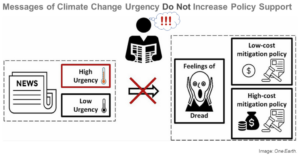
The IPCC Report and the Need for Radical Climate Action
The UN Intergovernmental Panel on Climate Change (IPCC) report demonstrates that climate breakdown is happening more quickly than anticipated and warns that much of the planet will soon become uninhabitable. The science-driven report emphasizes the urgent need for radical climate action to stay in a climate safety zon ...
Posted on 11/05/24
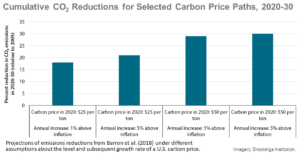
Navigating the Risks of Greenwashing in the Voluntary Carbon Market
Voluntary carbon markets (VCMs) offer an important market mechanism for firms to efficiently abate their emissions. By utilizing the VCM, they can buy verified carbon credits (VCCs) from carbon projects that have a lower marginal cost of abatement. One of the main obstacles in delivering the lowest cost abatement throu ...
Posted on 08/05/24

The Global Tipping Points Report 2023
The Global Tipping Points Report, launched at COP28 on 6 December 2023, is an authoritative assessment of the risks and opportunities of both negative and positive tipping points in the Earth system and society. A "tipping point" is that point at which a small change or a series of small changes or incidents becomes s ...
Posted on 08/05/24
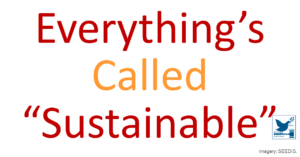
Buzzwords and Fuzzwords: Deconstructing Development Discourse
There are sustainable cities, economics, construction, destruction, investing, operation, and, inevitably, consultants – “There is nothing, it seems, that cannot be called ‘sustainable’”. A correct understanding of the term is important in the processes of policy-making and socioeconomic development as it has become a ...
Posted on 07/05/24
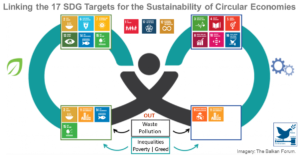
Accelerating Circular Economy Solutions to Achieve the 2030 Agenda for Sustainable Development Goals
A reduction of environmental and socioeconomic impacts of products and services can be achieved through a circular economy as a critical enabler of the sustainable use of natural resources. Systematic materials cycling for closed-loop resource supply chains and the integration of resource circularity with the SDGs is ...
Posted on 06/05/24
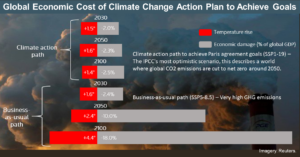
The Economic Commitment of Climate Change
Even if CO₂ emissions were drastically reduced immediately, the global economy would still be heading towards a significant drop of 19% in GDP by 2050, according to a recent study published in Nature. Scientists at the Potsdam Institute for Climate Impact Research (PIK) assessed future impacts of changing climatic con ...
Posted on 03/05/24
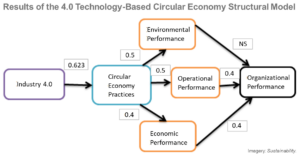
Technological Revolution and Circular Economy Practices: A Mechanism of Green Economy
Business models are being transformed by rising environmental concerns, Industry 4.0 technologies, and circular economy (CE) practices, which are the prevailing business considerations. Keeping these considerations in view, this work looks into the role of Industry 4.0 technologies in the adoption of CE practices and ...
Posted on 29/04/24
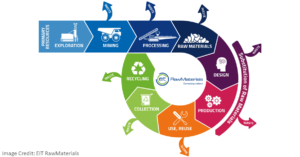
Circular Economy – Principles for Buildings Design
Circular economy principles for sustainable building design stress resource efficiency in construction to prevent and reduce construction and demolition waste and to re-use and recycle building materials and products. This document informs the key participants in the building value chain about sustainable building des ...
Posted on 26/04/24
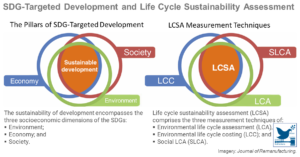
Life Cycle Costing: Evaluate Sustainability Outcomes for Building and Construction Sector
Life-cycle cost (LCC) is the sum of all costs related to the life cycle of a building from investment to its deconstruction. For a sustainable building, it is anticipated that the environmental impacts associated with the design, construction, and operation of this building are lower than conventional construction. L ...
Posted on 25/04/24
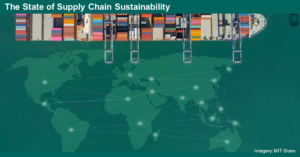
The state of supply chain sustainability
This report published by MIT Sloan defines supply chain sustainability as “the management of environmental and social impacts within and across networks consisting of suppliers, manufacturers, distributors, and customers.” The five key takeaways from the report, which captures a turbulent world that continues to grappl ...
Posted on 24/04/24
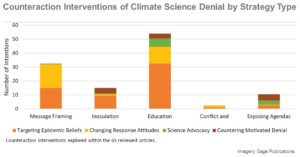
Counteracting climate denial: A systematic review
Despite overwhelming scientific consensus on climate change, climate denial is still widespread. While much research has characterized climate denial, comparatively fewer studies have systematically examined how to counteract it. This review fills this gap by exploring the research about counteracting climate denial, ...
Posted on 23/04/24

ESG Investing isn’t Designed to Save the Planet
Erroneously, ESG (environmental, social, and governance) investing is widely assumed to reward companies for helping the planet. However, ESG ratings, which underlie ESG fund selection, are based on the impact the changing world has on companies’ profit and loss. Asset managers have deliberately allowed the confusion ...
Posted on 22/04/24
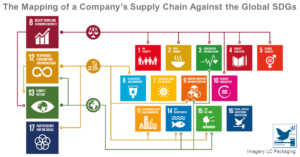
SDG-Oriented Supply Chains: Business Practices for Procurement and Distribution
Sustainable practices can be implemented within supply chains to support the Sustainable Development Goals (SDG). Procurement and distribution processes can be reengineered by implementing sustainable approaches that consider the environmental, social and economic dimensions of sustainability. SDG-oriented supply cha ...
Posted on 18/04/24
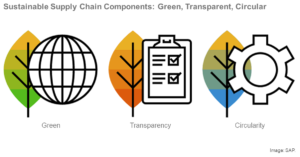
What Is a Sustainable Supply Chain?
A sustainable supply chain fully integrates ethical and environmentally responsible practices into a competitive and successful model. End-to-end supply chain transparency is essential for companies to demonstrate corporate social responsibility. Sustainability initiatives must extend from raw materials sourcing to l ...
Posted on 18/04/24

